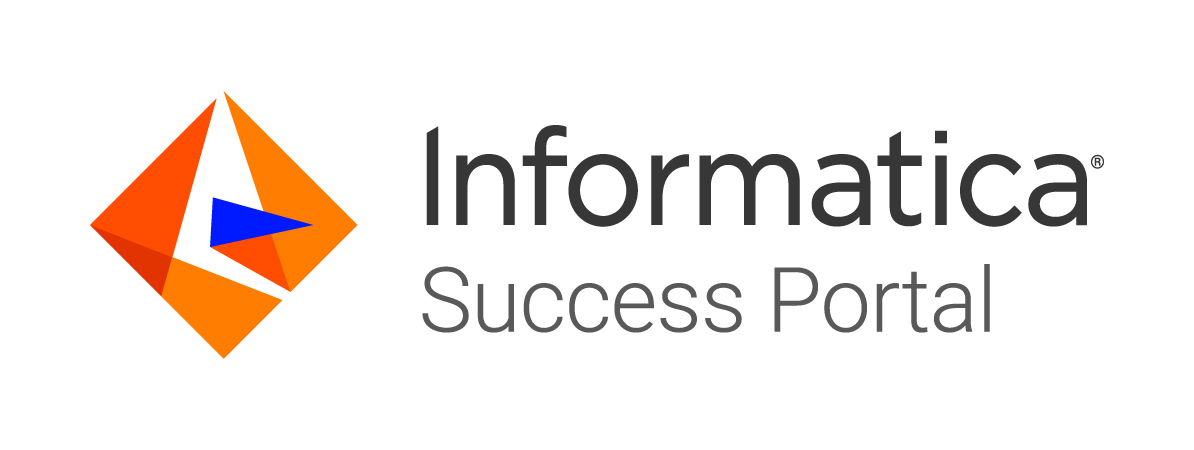-
Success
Manage your Success Plans and Engagements, gain key insights into your implementation journey, and collaborate with your CSMsSuccessAccelerate your Purchase to Value engaging with Informatica Architects for Customer SuccessAll your Engagements at one place
-
Communities
A collaborative platform to connect and grow with like-minded Informaticans across the globeCommunitiesConnect and collaborate with Informatica experts and championsHave a question? Start a Discussion and get immediate answers you are looking forCustomer-organized groups that meet online and in-person. Join today to network, share ideas, and get tips on how to get the most out of Informatica
-
Knowledge Center
Troubleshooting documents, product guides, how to videos, best practices, and moreKnowledge CenterOne-stop self-service portal for solutions, FAQs, Whitepapers, How Tos, Videos, and moreVideo channel for step-by-step instructions to use our products, best practices, troubleshooting tips, and much moreInformation library of the latest product documentsBest practices and use cases from the Implementation team
-
Learn
Rich resources to help you leverage full capabilities of our productsLearnRole-based training programs for the best ROIGet certified on Informatica products. Free, Foundation, or ProfessionalFree and unlimited modules based on your expertise level and journeySelf-guided, intuitive experience platform for outcome-focused product capabilities and use cases
-
Resources
Library of content to help you leverage the best of Informatica productsResourcesMost popular webinars on product architecture, best practices, and moreProduct Availability Matrix statements of Informatica productsMonthly support newsletterInformatica Support Guide and Statements, Quick Start Guides, and Cloud Product Description ScheduleEnd of Life statements of Informatica products
- Velocity
- Strategy
-
Solutions
-
Stages
Following a rigorous methodology is key to delivering customer satisfaction and expanding analytics use cases across the business.

-
More
-
Success
Manage your Success Plans and Engagements, gain key insights into your implementation journey, and collaborate with your CSMsAccelerate your Purchase to Value engaging with Informatica Architects for Customer SuccessAll your Engagements at one place
-
Communities
A collaborative platform to connect and grow with like-minded Informaticans across the globeConnect and collaborate with Informatica experts and championsHave a question? Start a Discussion and get immediate answers you are looking forCustomer-organized groups that meet online and in-person. Join today to network, share ideas, and get tips on how to get the most out of Informatica
-
Knowledge Center
Troubleshooting documents, product guides, how to videos, best practices, and moreOne-stop self-service portal for solutions, FAQs, Whitepapers, How Tos, Videos, and moreVideo channel for step-by-step instructions to use our products, best practices, troubleshooting tips, and much moreInformation library of the latest product documentsBest practices and use cases from the Implementation team
-
Learn
Rich resources to help you leverage full capabilities of our productsRole-based training programs for the best ROIGet certified on Informatica products. Free, Foundation, or ProfessionalFree and unlimited modules based on your expertise level and journeySelf-guided, intuitive experience platform for outcome-focused product capabilities and use cases
-
Resources
Library of content to help you leverage the best of Informatica productsMost popular webinars on product architecture, best practices, and moreProduct Availability Matrix statements of Informatica productsMonthly support newsletterInformatica Support Guide and Statements, Quick Start Guides, and Cloud Product Description ScheduleEnd of Life statements of Informatica products
-
Success
Network Administrator
Share On:
Cloud Data Warehouse & Data Lake
Cloud Data Warehouse & Data Lake
Last Updated Date May 25, 2021
|
The Network Administrator is responsible for maintaining the organization's computer networks. This is relevant to the analytic solution development effort because the movement of data between source and target systems is likely to place a heavy burden on network resources. The Network Administrator must be aware of the data volumes and schedules involved to ensure that adequate network capacity is available, and that other network users are not significantly (negatively) impacted.
Responsibilities
- Designs and implements complex local and wide-area networked environments
- Manages a large, complex network or site and ensures that network capacity is available
- Provides appropriate security for data transmission over networked resources
- Establishes and recommends policies on systems and services usage
- Provides 3rd level support for applications executing on a company network
- Develops and communicates networking policies and standards
- Plans network architectures and infrastructures in support of data management processes and procedures
- Collaborates with other departments (i.e., DBA's) to identify and resolve performance issues
- Effectively communicates with other technology and project team members
Qualifications/Certifications
- Experience in enterprise network management
- Solid understanding of networking/distributed computing environment technologies
- Detailed knowledge of network and server operating systems
- Experience in performance analysis and tuning to increase throughput and reliability
- Expertise in routing principles and client/server computing
- Strong Business Analysis and problem-solving skills
- Network certification in relevant operating system
- Planning and implementation of preventative maintenance strategies
